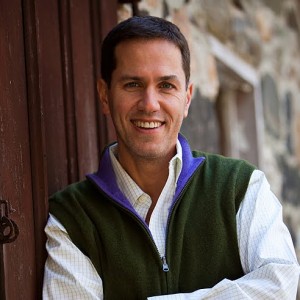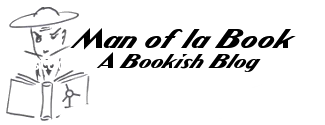Author J.E. Fishman had a very interesting career in the book business; his blog is fascinating and enlightening. Mr. Fishman took the time to answer some questions I had about his new thriller “Primacy” (book review).

Q. Why was it important for you to write a book about animal testing?
A. The way we treat things over which we have power is a reflection not only of our values but of our humanity. There are estimated to be 100 million vertebrates locked up in animal testing facilities all over the United States – more than fifty thousand of these non-human primates. They are transported in unmarked vehicles and hidden behind unidentified doors. It’s a big industry that’s conducting what amounts to institutionalized torture of lesser beings. This is in the name of our society, because it’s said to be for the greater good.
Primacy is not a philosophical treatise; it’s a thriller. But sometimes entertainment can help us sort through our own humanity or inhumanity. Why are these animals hidden away? The scientists will tell you it’s because, otherwise, crazy animal rights terrorists will attack them. That may be part of the reason. But historically society also hides things away because we’re ashamed of them. Maybe the animal rights people, even if they go overboard sometimes, are agents of that shame.
By the way, I don’t have a pat answer as to whether some of the torture of these animals is justifiable based upon the good of mankind. It’s not necessarily a novelist’s job to have all the answers, but it is (as the great Milan Kundera said) the novelist’s job to pose questions. Whether we should acquiesce to the suffering of all these animals that are being tortured in our names is an important question. You won’t necessarily find the answer in the pages of Primacy, but it may lead you to your own answer by shining a light into those dark corners.
Q. Strangely enough I’ve seen on the news two animals (dolphin and a fish) using tools to eat (a shell to catch fish and a stone to open a clam) – to me this was an amazing breakthrough. Is there a lot more of the animal kingdom we don’t know?
A. Anyone who spends any time around animals and bothers to observe them has to admit that we probably don’t give them enough credit. Temple Grandin, the animal behaviorist, says animals are like “idiot savants.” They’re very limited in many ways but also geniuses in a few things.
I don’t work with animals, but I was recently watching one of my dogs having a dream. I happen to be re-reading Carl Jung’s Man and His Symbols, which is largely about dreams, and here was my dog twitching her eyes and her paws, as if she were running in her dream. Most people who have dogs have witnessed things like this. Watching it while reading Jung, it occurred to me that dreaming is a creative act, even if it’s a subconscious one. So does this mean that a dog has creativity? I don’t know. But it seems that every time we draw a distinction between ourselves and animals based upon behavior, we turn out to have underestimated them.
I saw the coverage of tool use that you’re referring to. Not long ago, I also read an article that said crows “understand” the concept of displacement. Shown something they want floating in a jar that’s too deep to reach with their beaks, they’ll gather rocks and such to raise the water level. It doesn’t make them human, but it would make us less human not to acknowledge that.
Q. Can you tell about some experiences founding The Bedford Book Works Literary Agency?
A. I had been an editor at Doubleday and I had two insights while there. One, working in a big corporate environment wasn’t my thing. And, two, as an editor I was spending a good deal of my time pitching authors within house. So I figured I may as well start pitching for my own account, so to speak. Although I’ve always had the ambition to be a novelist, I ended up specializing in non-fiction, just because one thing led to another and I came to represent a lot of journalists – people from the Wall Street Journal, New York Times, Business Week, San Jose Mercury News, etc.
I did represent some interesting personalities. I sold a memoir by Kweisi Mfume, who was head of the Black Congressional Caucus at the time, though when the book finally came out I think he had left congress to lead the NAACP. I also represented Howard Schultz, the founder of Starbucks, in what at the time was one of the biggest non-fiction book deals of that year. But the most fun I had was doing the “Martha Stuart” parodies with a couple of nuts, Tom Connor and Jim Downey. They showed “Martha” walking on water, outshining the bride and generally being better than everyone else at impossible tasks. These books were huge bestsellers and deservedly so – just hilarious.
Q. As an author of non-fiction books, what differences did you experience writing a fictional one?
A. riting non-fiction is like putting together a jigsaw puzzle. The more pieces you get into place, the easier it is to figure out where the other pieces should go. By contrast, E. L. Doctorow described writing fiction as driving in pitch blackness with the headlights on: you can only see so far in front of you. That description seems about right to me. You grope around some until you feel something that’s true.
Q. Any positive/negative experiences in book promotions? What are the challenges of book promotions in the social media age?
A. When I was ghostwriting, promotion was the co-author’s problem. For Primacy, it’s a little early yet to say. I did visit five local bookstores recently, to let them know I’d be happy to do an event. One of them literally told me, “only your mother will show up.” She may have been right, especially because she hadn’t already built trust with her own customers! On the other hand, the other four stores expressed great enthusiasm. One of them waited to read it before committing, but promptly fell in love with the book and started offering me all kinds of things she’d like to do well beyond the call of bookseller duty. Having bookseller fans is great, because the booksellers are the influencers. They’ll talk it up to their customers, creating word of mouth, which is the old form of social networking.
As for the new social networking, I wrote a blog post for The Nervous Breakdown and listed that as one of three “shiny objects” – that is, things that can distract us from more productive endeavors. (The other two shiny objects, by the way, were book trailers and book tours.) Social networking is a necessary aspect of promotion these days – I tweet and I’m on Facebook and Google+ – but it’s so crowded that the odds of anything going viral are miniscule. Some time spent social networking is justified, but I don’t think authors should devote hours a day to it. Now, the bloggers…they really add value. In an age when newspaper book reviews are fewer and farther between, bloggers like yourself help readers sort through all the noise.
Shameless plug disguised as a wise ass question: Why do you love ManOfLaBook.com so much and often visit the website?
Wise Guy Answer: Um, because you don’t mess with the Zohar?
Now if I could only convince my six year old daughter not to mass with the Zohar…
Zohar – Man of la Book
Related articles
- Book Review: Primacy by J.E. Fishman (blogcritics.org)
- Interview with CHARLES FISHMAN (ilgiardinodeibucaneve.wordpress.com)
- August 18: A Conversation with Charles Fishman, Author of The Big Thirst (chicagolandh2o.wordpress.com)
- Water, Water (cenblog.org)



No Comments